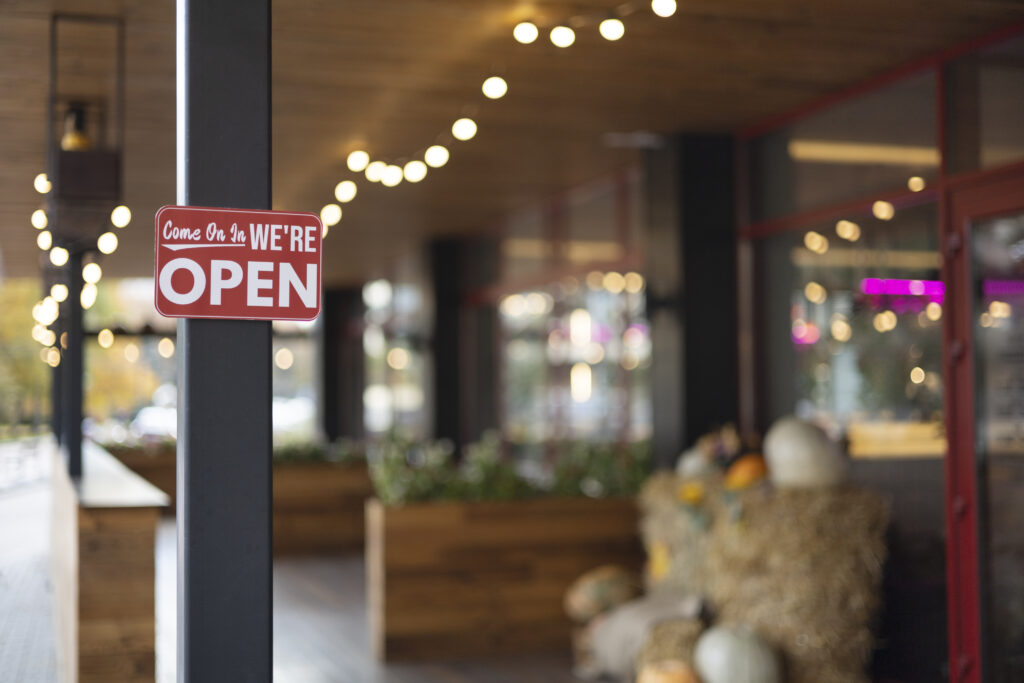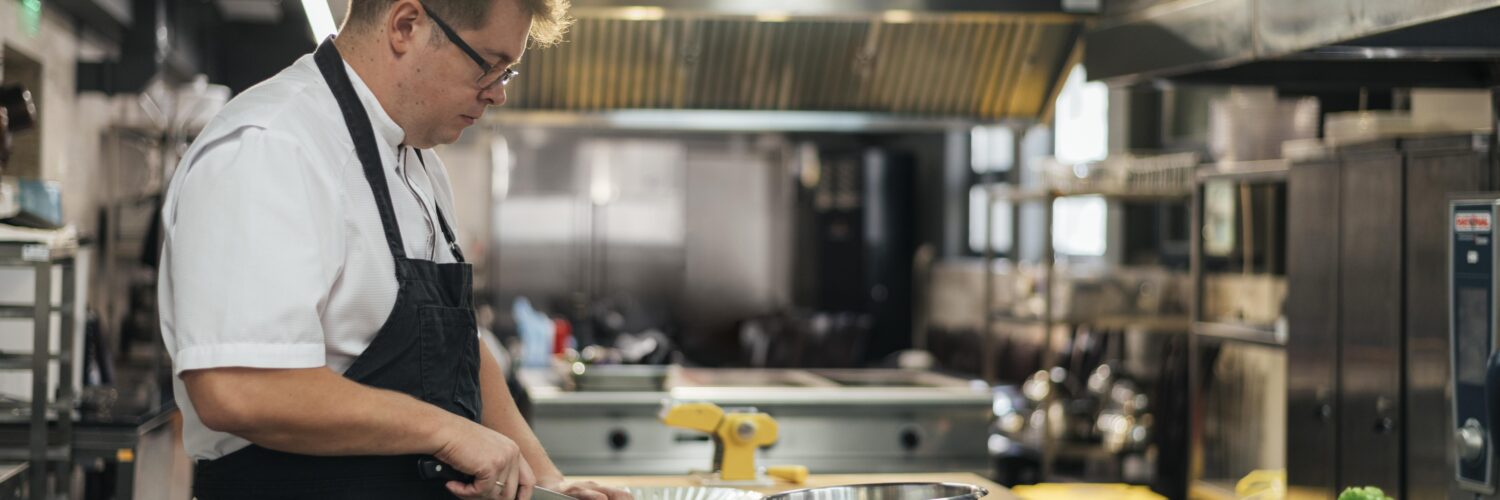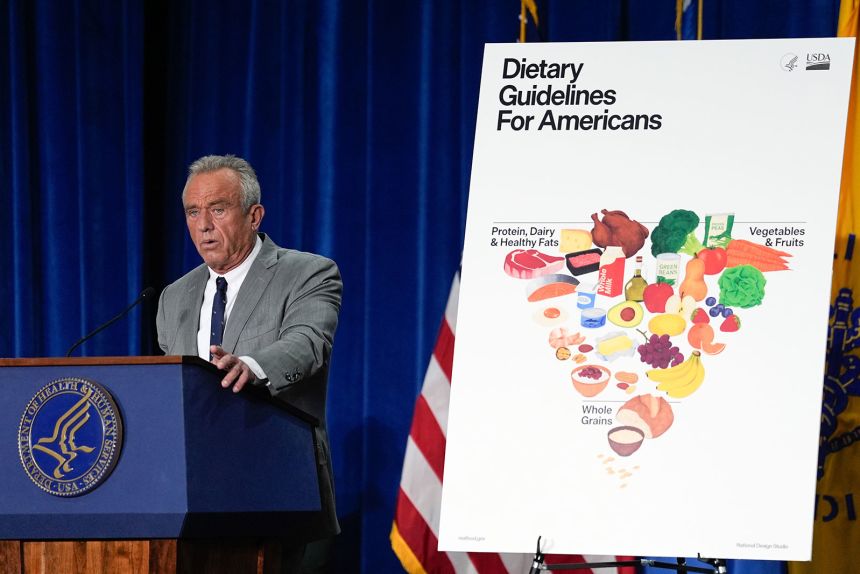Running a restaurant in Florida is more than a passionit’s an exercise in balancing risks. Between regulatory requirements, staffing challenges, unpredictable weather, and customer expectations, every decision carries financial weight. Insurance is supposed to be a safety net, but for many restaurant owners, hidden gaps in coverage can create costly surprises when disaster strikes.
That’s why securing comprehensive restaurant insurance coverage in Florida is not just about meeting minimum requirements, it’s about building a safety structure that addresses the unique vulnerabilities of operating in this state. From hurricane-related property damage to liability claims from slip-and-fall accidents, Florida restaurants face exposures that can quickly derail profitability. Without a tailored and all-encompassing policy, even one unforeseen event can lead to financial instability or force a permanent closure.
Comprehensive coverage also ensures that owners aren’t relying on a patchwork of policies that leave dangerous gaps. It integrates essential protections such as General Liability, Workers Compensation, Business Interruption, and Commercial Property Insurance into a cohesive plan designed for Florida’s distinct risks. For example, while many owners secure property insurance, not all policies automatically cover flood damage, a major concern given Florida’s coastal geography. Similarly, liquor liability and employee-related claims are often overlooked, yet they represent some of the most common lawsuits in the hospitality sector.
Understanding these common gaps is the first step toward protecting not just the building and staff, but also the long-term viability of the business. By investing in comprehensive coverage, restaurant owners create a resilient foundation that safeguards their operations, employees, and reputation while allowing them to focus on what truly matters, delivering exceptional dining experiences.

The Overlooked Risks That Threaten Florida Restaurants
Running a restaurant in Florida means navigating a unique set of risks. While many owners secure insurance to protect against obvious threats like fire or theft, countless exposures remain overlooked. Natural disasters, employee claims, and even changes in business operations can leave serious coverage gaps that threaten both profitability and long-term survival. Without a strategy for comprehensive restaurant insurance coverage in Florida, restaurant operators often find themselves vulnerable to financial shocks that could have been prevented.
Why Insurance Gaps Are More Common Than Owners Realize
Restaurant owners often believe that a standard policy automatically covers all risks. In reality, many policies are written with exclusions, limits, or conditions that leave operators exposed. For example, a property insurance policy may cover fire damage but exclude flood losses, an especially pressing issue for Florida’s coastal and low-lying communities. Likewise, some liability policies exclude liquor-related incidents, even though alcohol sales make up a large portion of revenue for bars, grills, and fine dining establishments.
Another overlooked risk is business evolution. Restaurants rarely stay the same over time; they expand menus, add delivery services, open outdoor seating, or invest in renovations. If the insurance plan is not updated to reflect these changes, the restaurant may be operating with outdated protection. This mismatch often becomes apparent only after a loss occurs, leaving owners to absorb costs that they assumed were covered. With comprehensive restaurant insurance coverage in Florida, these gaps can be minimized through policies that adapt to growth and operational changes.
The Cost of Being Underinsured in a Competitive Market
Insurance gaps don’t just create legal risks, they can jeopardize a restaurant’s very existence. A single lawsuit from a customer slip-and-fall, a hurricane that damages the property, or a workers’ compensation claim from a kitchen injury can easily result in six-figure expenses. For small to mid-sized restaurants, these losses often push finances past the breaking point, leading to bankruptcy or permanent closure.
Industry research underscores this danger. According to theInsurance Information Institute (III), 40% of small businesses never reopen after a disaster, largely due to inadequate insurance planning. In Florida, the stakes are even higher. Restaurants face seasonal hurricanes, year-round tropical storms, heavy tourism-driven traffic that increases liability exposure, and high staff turnover that elevates the risk of employee-related claims. Without comprehensive restaurant insurance coverage in Florida, owners are left to manage these risks piecemeal often with devastating financial consequences.
Liability Exposures That Can Put Restaurants in Legal Trouble
Operating a restaurant in Florida means constantly managing liability risks that can escalate into costly lawsuits. Even the most well-run establishments face exposures that, if uninsured or underinsured, can cripple finances and reputation. That’s why securing comprehensive restaurant insurance coverage in Florida is essential; it ensures that both common and overlooked liabilities are addressed in a single, integrated plan.
General Liability Oversights: Slip-and-Fall and Customer Injury Claims
General liability insurance is the foundation of restaurant protection, covering customer injuries and property damage. Yet many owners underestimate the costs of real-world claims and carry only the minimum required limits. A simple slip-and-fall on a wet floor can trigger medical bills, rehabilitation costs, lost wages, and legal fees that quickly surpass standard coverage limits.
For example, a claim involving a head injury could easily exceed $250,000 once litigation and long-term care are factored in. Without sufficient coverage, the restaurant itself becomes responsible for the excess damages, an expense that can be devastating for small and mid-sized establishments. Strengthening general liability as part of comprehensive restaurant insurance coverage in Florida protects against these unpredictable, high-dollar events.
Liquor Liability: Serving Alcohol Without Full Coverage
Florida’s hospitality industry thrives on alcohol sales, but liquor service also creates one of the most severe liability exposures in the industry. Many owners mistakenly assume that their general liability policy covers alcohol-related incidents, when in fact most exclude them entirely.
If a customer is overserved and later causes a car accident, the restaurant may face lawsuits for damages, medical costs, and wrongful death claims. Florida courts have consistently held establishments liable for incidents involving underage or visibly intoxicated patrons. These cases can result in multi-million-dollar verdicts, especially when multiple victims are involved.
Adding liquor liability insurance to a comprehensive restaurant insurance coverage in Florida package closes this dangerous gap, protecting bars, cafés, and restaurants from one of the state’s most common and costly exposures.
Foodborne Illness and Allergic Reactions: Hidden Legal Traps
Food safety is at the core of every restaurant’s reputation, but it also represents a major liability risk. Even a single case of salmonella, norovirus, or cross-contamination can escalate into class-action lawsuits if multiple customers are affected. Similarly, failing to properly manage food allergens can trigger severe reactions and costly litigation.
Coverage for foodborne illness and allergen-related claims varies widely across policies, and many standard restaurant policies include exclusions. Without clear, tailored protection, an operator may discover too late that these exposures are not covered. Incorporating foodborne illness liability into comprehensive restaurant insurance coverage in Florida ensures that restaurants are prepared for both isolated incidents and widespread outbreaks.

Employment-Related Insurance Gaps That Lead to Costly Claims
When restaurant owners think about insurance, they often focus on property damage or customer liability. However, some of the most expensive and frequent claims in Florida’s hospitality sector are employment-related. High staff turnover, seasonal hiring, and regulatory complexity create exposures that many restaurants overlook. Incorporating these protections into comprehensive restaurant insurance coverage in Florida is essential to safeguard both financial stability and employee trust.
Workers’ Compensation: Why Part-Time and Seasonal Staff Still Need Coverage
Florida law requires most businesses with four or more employees to carry workers’ compensation. Yet, confusion often arises in the restaurant industry, where many establishments employ part-time, temporary, or seasonal workers. Some owners mistakenly believe these employees are exempt from coverage, leaving the business exposed to severe financial consequences.
Failure to comply can result in significant fines, penalties, and lawsuits if an uncovered worker is injured on the job. In a fast-paced environment where burns, cuts, lifting injuries, and slips are common, workers’ compensation provides a vital safety net. It ensures employees receive medical treatment, wage replacement, and rehabilitation while protecting the restaurant from direct liability for injury-related expenses.
By including workers’ comp in comprehensive restaurant insurance coverage in Florida, owners can maintain compliance and reduce the risk of lawsuits from both employees and regulators.
Employment Practices Liability: Discrimination, Harassment, and Wage Disputes
Restaurants are among the most frequent targets for employment-related claims. Allegations of discrimination, harassment, wrongful termination, or wage disputes can surface in any workplace, regardless of size. These claims often come with high legal defense costs even if the restaurant ultimately prevails.
Standard general liability and workers’ compensation policies do not cover these exposures. That’s where Employment Practices Liability Insurance (EPLI) comes in. EPLI provides protection for legal fees, settlements, and judgments arising from employee-related disputes. Without it, restaurants are forced to pay out of pocket, which can be devastating for independent operators.
The U.S. Small Business Administration (SBA) emphasizes EPLI as an essential coverage for industries with high employee turnover, such as food service. For Florida restaurants, incorporating EPLI into a comprehensive restaurant insurance coverage in Florida plan ensures that owners are prepared to handle these risks proactively.
Understanding New Labor Regulations in Florida
Restaurant operators also face ongoing challenges from evolving labor regulations. Recent changes in wage laws, tipped employee rules, and overtime requirements have increased compliance pressures. Even well-intentioned mistakes in payroll or scheduling can spark costly disputes, government audits, or lawsuits.
Insurance cannot replace the need for compliance, but the right policies help manage the financial consequences of disputes. For example, EPLI can cover defense costs if a Department of Labor investigation or employee lawsuit escalates. Combining this with proactive compliance measures strengthens a restaurant’s overall risk management strategy.
When structured properly, comprehensive restaurant insurance coverage in Florida not only meets state requirements but also provides critical protection against the employment-related exposures that can derail a growing business.

Property Protection Gaps Restaurants Often Overlook
For Florida restaurants, property protection is just as critical as liability coverage. A single hurricane, equipment failure, or unexpected building repair can halt operations for weeks or even months. Unfortunately, many owners assume their property insurance covers every possible risk, only to discover exclusions at the worst possible time. Building comprehensive restaurant insurance coverage in Florida requires addressing these overlooked gaps to avoid devastating financial surprises.
Fire, Flood, and Storm Damage in Coastal Regions
Commercial property insurance typically covers fire, theft, and some forms of storm damage. However, one of the most dangerous misconceptions among restaurant owners is assuming that flood losses are included. In reality, flooding is almost always excluded from standard policies.
In Florida’s hurricane-prone climate, this is a critical oversight. Coastal and low-lying areas are particularly vulnerable to storm surge and heavy rainfall. After a major storm, restaurants that lack flood insurance often face repair costs in the hundreds of thousands of costs that standard property coverage won’t pay. Integrating flood insurance into a comprehensive restaurant insurance coverage in Florida plan ensures that restaurants are protected against one of the state’s most common and catastrophic risks.
Equipment Breakdown: Why Standard Policies May Not Pay Out
Restaurants rely on specialized equipment to keep operations running smoothly; refrigeration units, ovens, grills, HVAC systems, and dishwashers are essential for daily service. Standard property policies generally cover damage from external risks, such as fire or vandalism, but not internal mechanical or electrical breakdowns.
This creates a dangerous coverage gap. If a walk-in freezer malfunctions and thousands of dollars in perishable inventory are lost, most property policies won’t pay out. Only an equipment breakdown endorsement or separate policy provides coverage for these situations. By including equipment breakdown coverage as part of comprehensive restaurant insurance coverage in Florida, owners safeguard both their operations and their perishable stock.
Ordinance or Law Coverage: Meeting Building Code Upgrades
Another overlooked property risk involves rebuilding after damage. Standard property insurance covers the cost of replacing damaged structures, but it does not account for the additional expenses of bringing an older building up to current codes. Florida has strict and evolving building regulations, particularly in coastal areas where hurricane-resistant construction is required.
Without ordinance or law coverage, a restaurant forced to rebuild after a fire or storm could face tens of thousands in extra costs to comply with modern standards. This can overwhelm smaller businesses already strained by disaster recovery. Adding ordinance or law coverage into comprehensive restaurant insurance coverage in Florida helps ensure restaurants can rebuild safely, legally, and without unexpected financial strain.

Business Interruption Insurance: The Safety Net Many Restaurants Lack
One of the most underestimated risks in the restaurant industry is not just the damage caused by disasters, but the financial toll of being forced to close. Even if property repairs are covered, the loss of revenue during downtime can be crippling. For this reason, business interruption insurance is a critical component of comprehensive restaurant insurance coverage in Florida, ensuring that restaurants can survive closures without draining their financial reserves.
Revenue Loss During Natural Disasters
Florida restaurants are especially vulnerable to hurricanes, tropical storms, and flooding. While commercial property insurance may pay for physical repairs, it does not replace the income lost when the restaurant is closed for weeksor even monthsduring reconstruction. Business interruption insurance fills this gap by covering lost income, rent, utilities, and payroll expenses.
For example, a coastal seafood restaurant that suffers roof damage during a hurricane might close for 45 days. Without business interruption coverage, the owner must still pay rent and employee wages despite having no incoming revenue. With it, the restaurant can sustain operations until doors reopen.
Supply Chain Disruptions and Utility Failures
The COVID-19 pandemic highlighted the fragility of global supply chains, but Florida restaurants face additional challenges from local disruptions. Hurricanes often delay food deliveries, limit fuel availability, or cause prolonged power outages. These factors can halt service even if the restaurant itself remains undamaged.
Business interruption coverage can offset losses caused by these indirect factors, helping owners manage operating expenses when suppliers cannot deliver or when utility failures prevent normal operations. By including this safeguard in comprehensive restaurant insurance coverage in Florida, restaurants protect themselves against the ripple effects of events beyond their control.

How Interruption Coverage Keeps Restaurants from Closing Permanently
The National Restaurant Association (NRA) has consistently noted that unexpected closures, even those lasting only a few weeks, are one of the leading causes of permanent restaurant failure. Fixed costs like rent, loans, and wages do not stop accumulating simply because the dining room is closed.
Business interruption insurance provides a financial cushion that allows restaurants to continue paying staff, cover overhead, and even relocate temporarily if needed. This coverage often makes the difference between surviving a disaster and shutting down permanently. For Florida restaurants, where natural disasters and supply chain issues are recurring realities, business interruption insurance is not a luxury; it is an essential piece of comprehensive restaurant insurance coverage in Florida.
The Role of Comprehensive Insurance in Safeguarding Restaurants
The restaurant industry is dynamic, competitive, and full of unique risks that vary depending on the type of establishment. No two restaurants face the exact same exposures, which is why a one-size-fits-all insurance approach often leaves dangerous gaps. By investing in comprehensive restaurant insurance coverage in Florida, owners ensure that every major risk whether it’s related to employees, property, liability, or operations is addressed under a cohesive and customized plan.
Tailoring Coverage to Business Type (Fine Dining vs. Quick Service vs. Bars)
Every restaurant operates differently. Fine dining establishments may face higher liquor liability risks, while fast-food restaurants contend with higher employee turnover. Bars may require extended liquor liability and late-night coverage. Comprehensive coverage addresses these differences by customizing policies to specific business models.Every restaurant operates differently, and their insurance needs reflect those differences. Fine dining establishments may face elevated liquor liability risks due to extensive wine and cocktail service. Quick-service restaurants often struggle with high employee turnover, creating greater exposure to workers’ compensation and employment practices liability claims. Bars and nightlife venues face added risks, including liquor liability for overserved patrons and higher exposure to late-night incidents.
A comprehensive policy adapts to these variables, ensuring that each business model is protected against its most pressing risks. For instance, a café serving specialty coffee may prioritize property protection for high-value equipment, while a family-style restaurant may need robust general liability coverage for high customer traffic. comprehensive restaurant insurance coverage in Florida provides this level of customization, aligning policies with the realities of each type of restaurant.
Meeting Regulatory Requirements in Florida’s Hospitality Sector
Florida has strict insurance requirements for businesses in the hospitality industry. Workers’ compensation coverage is mandatory for most restaurants with four or more employees, and certain municipalities impose additional licensing and insurance requirements. Failing to comply not only results in steep fines but can also lead to business closure and civil liability.
Comprehensive insurance ensures that restaurants remain compliant with state and local regulations while going beyond the minimum legal standards. For example, while state law may only mandate workers’ compensation, prudent owners often add employment practices liability, cyber liability, and flood insurance to cover the full spectrum of risks unique to Florida’s market. This approach transforms compliance into true protection.
Comprehensive Restaurant Insurance Coverage in Florida
For restaurant owners who want clarity and peace of mind, reviewing options for comprehensive restaurant insurance coverage in Florida is the best place to start. These tailored policies bring together general liability, property protection, workers’ compensation, and business interruption insurance into one streamlined package.
Instead of juggling multiple carriers or piecing together policies that may leave gaps, comprehensive coverage simplifies management while strengthening financial resilience. With Florida’s unique risk profile hurricanes, heavy tourism, high turnover, and strict regulations, having a policy that integrates all essential protections is not just smart business strategy, but a lifeline for long-term survival.
How Restaurant Owners Can Identify and Close Coverage Gaps
Conducting a Risk Assessment Before Renewal
One of the most effective strategies is to schedule annual risk assessments. These reviews highlight changes in operations such as new equipment, menu items, or staff growth that could affect coverage needs.
Asking the Right Questions When Reviewing Policies
Owners should ask whether their current policies include flood coverage, liquor liability, EPLI, or ordinance upgrades. Many assume coverage exists until a claim reveals otherwise.
Comparing Restaurant Insurance Plans with Expert Guidance
The marketplace offers many policies, but not all are suited for Florida’s unique risks. Comparing plans with professional assistance helps restaurant owners avoid misleading exclusions or insufficient limits.
Key Takeaways for Florida Hospitality Professionals
Common Insurance Gaps That Lead to Financial Losses
- Lack of liquor liability
- Inadequate workers’ compensation for part-time staff
- Absence of flood or equipment breakdown coverage
- Failure to carry business interruption insurance
The Benefits of Proactive Coverage Planning
Proactive insurance planning allows restaurants to anticipate risks instead of reacting to them. This approach ensures that coverage grows alongside the business.
When to Seek Professional Consultation and Policy Review
Restaurants that haven’t reviewed their coverage in the last year, recently expanded, or begun serving alcohol should request a professional consultation. Even long-standing policies may contain exclusions that no longer align with the restaurant’s operations.

Safeguarding Your Restaurant’s Future with Comprehensive Coverage in Florida
Insurance is more than a regulatory requirement; it is a strategic safeguard for the Florida restaurant industry. By identifying and closing common insurance gaps, owners can protect their businesses from lawsuits, natural disasters, supply chain disruptions, and unexpected closures. Comprehensive protection is not just about compliance; it is about creating long-term stability in one of the most competitive and risk-heavy markets in the country.
Restaurant professionals who want to safeguard their investment are encouraged to:
- Contact trusted insurance specialists for one-on-one consultations.
- Request a personalized risk assessment to uncover hidden exposures.
- Explore custom restaurant insurance plans that integrate liability, property, workers’ compensation, and business interruption coverage into a single, streamlined solution.
For restaurant owners seeking clarity, reliability, and affordability, Commercial Insurance Services (CIS) stands out as the best option. As an experienced independent agency, CIS specializes in tailoring comprehensive restaurant insurance coverage in Florida that adapts to the unique needs of fine dining establishments, quick-service restaurants, cafés, and bars. With CIS, owners gain more than an insurance policy, they gain a trusted partner dedicated to protecting their business, employees, and future growth.
To learn more, visit https://usa-cis.com/ or contact one of their knowledgeable agents today





